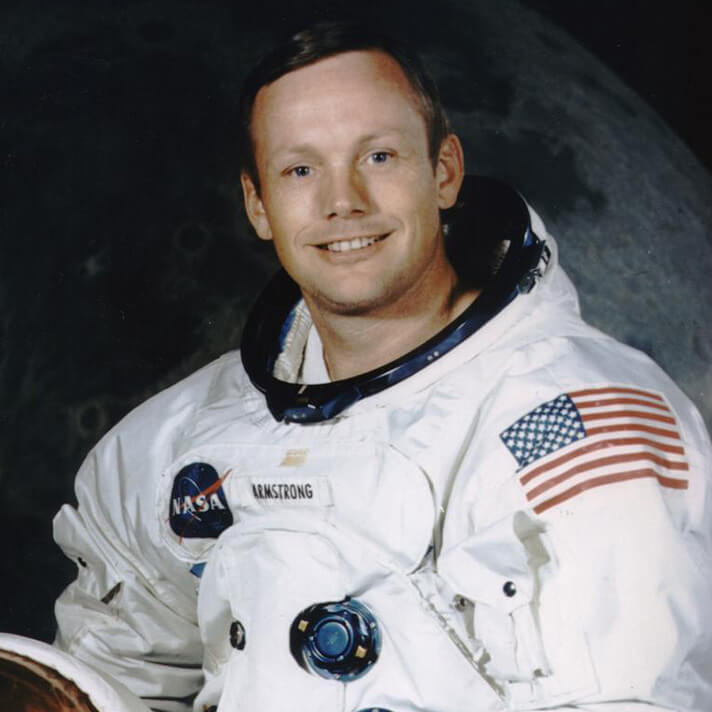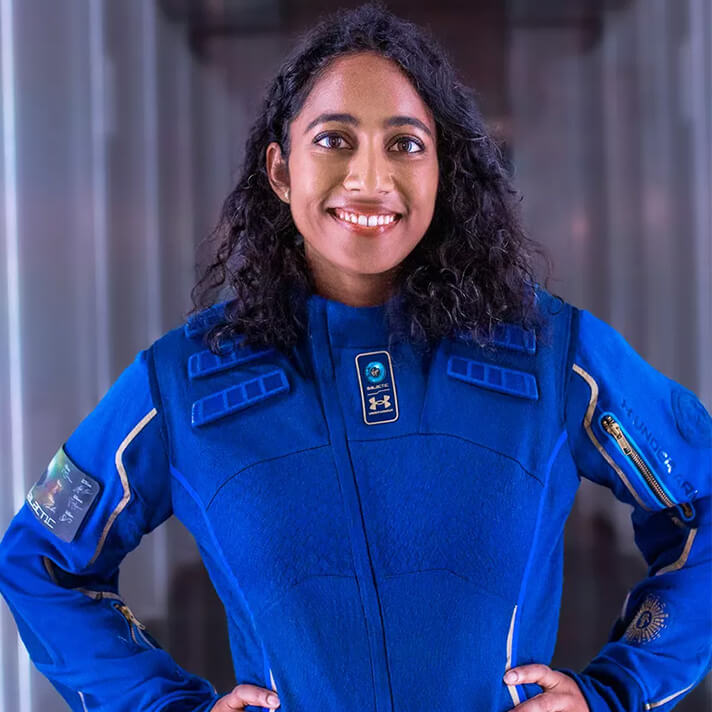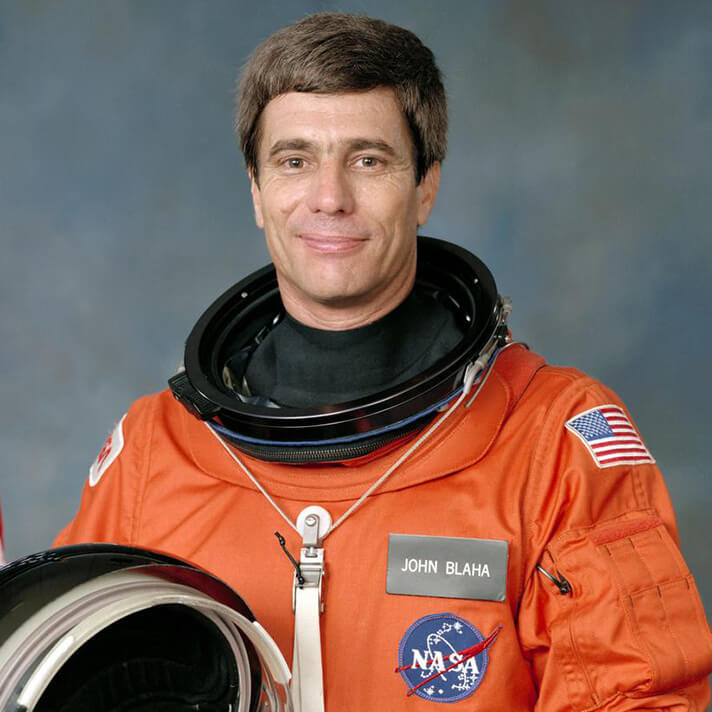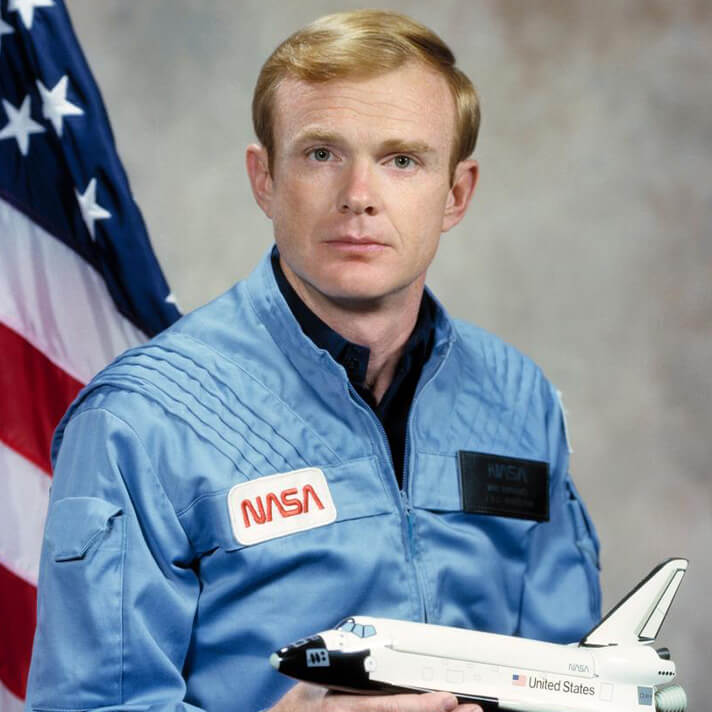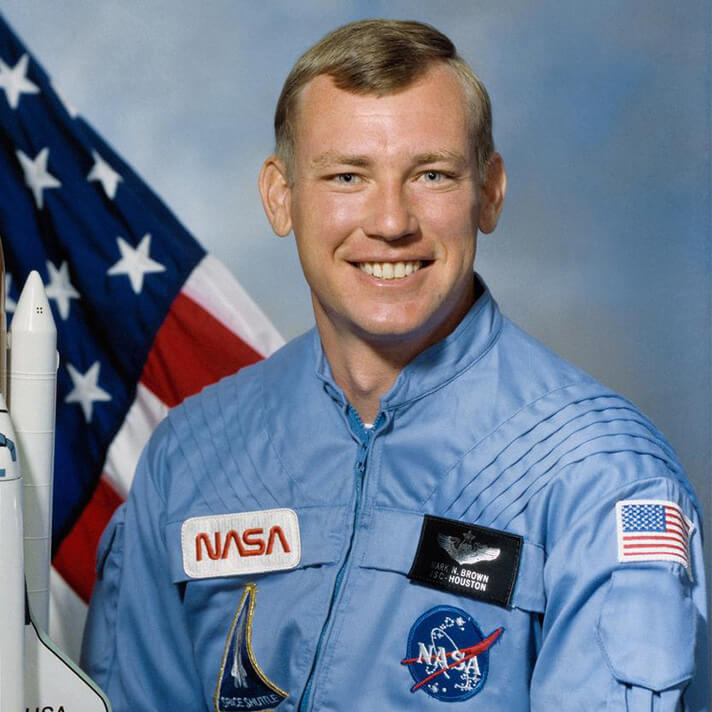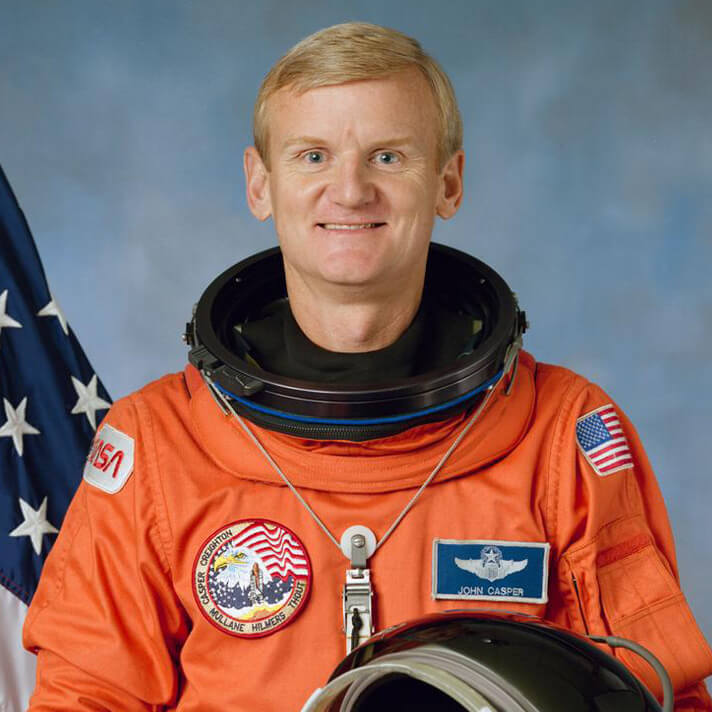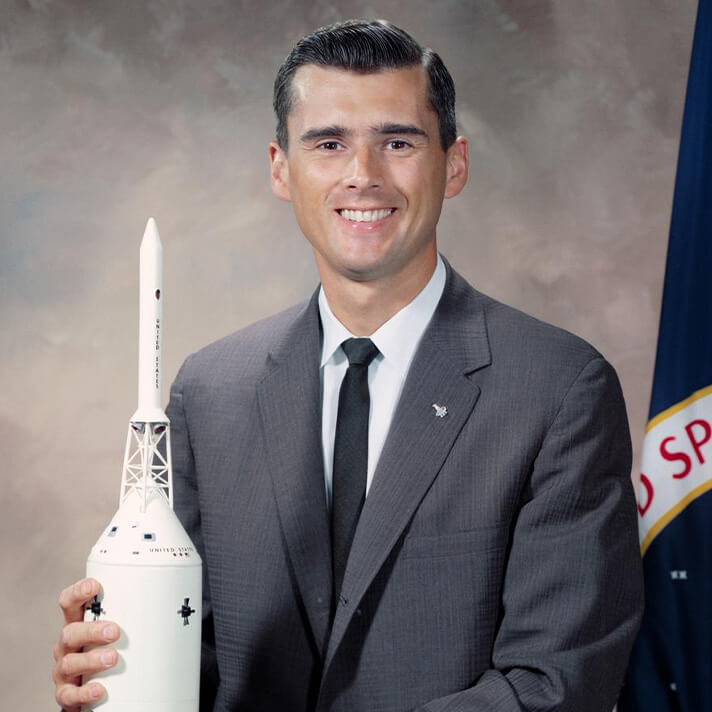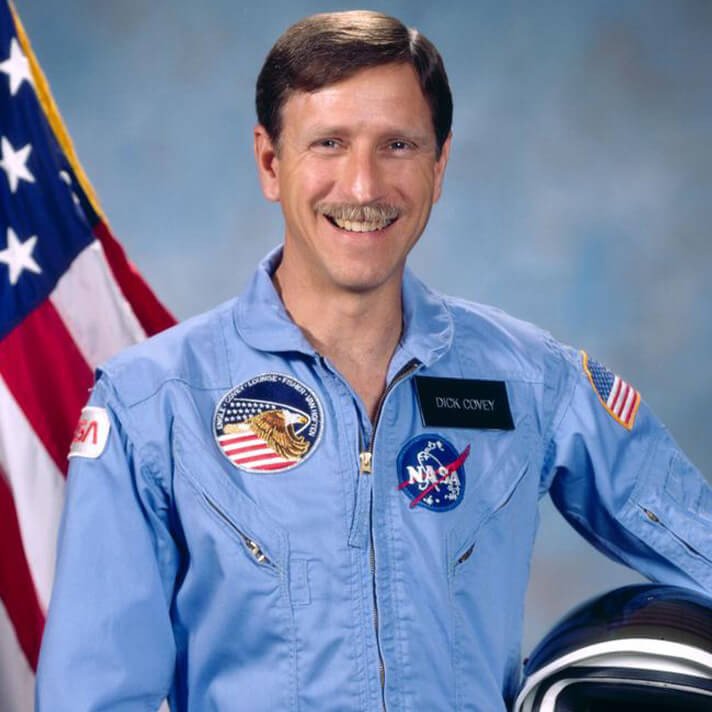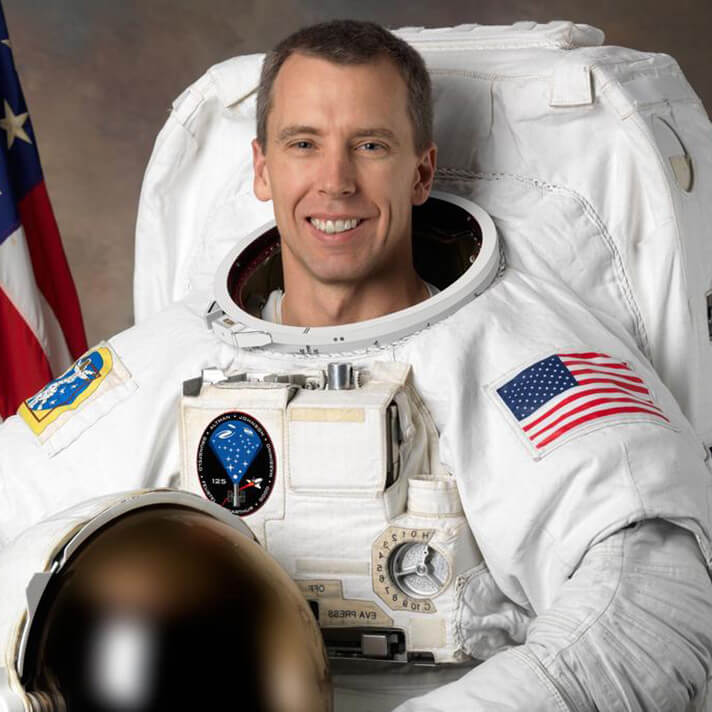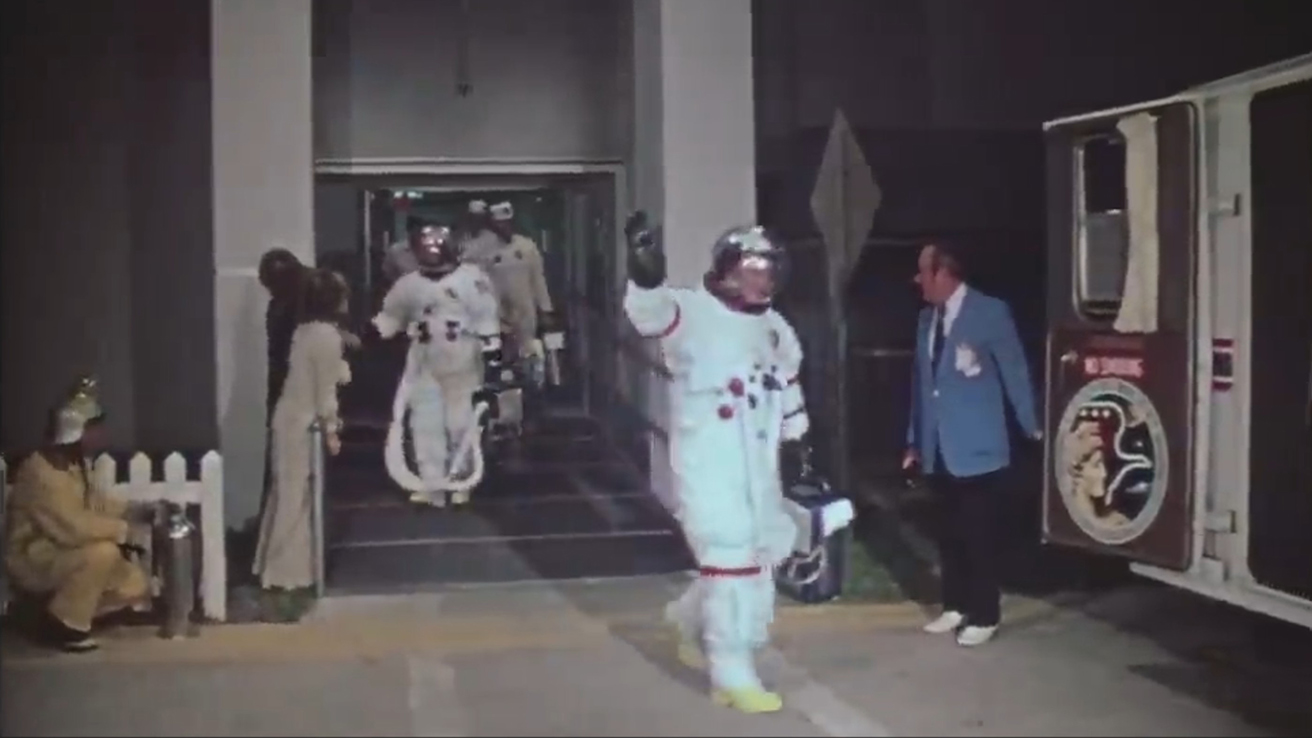
Gene Cernan
BS electrical engineering ’56
1934-2017
Missions: Gemini 9, Apollo 10, Apollo 17
Three years after Purdue astronaut Neil Armstrong became the first person to walk on the moon in 1969, Armstrong’s fellow Boilermaker Eugene Cernan took humankind’s most recent steps on the lunar surface.
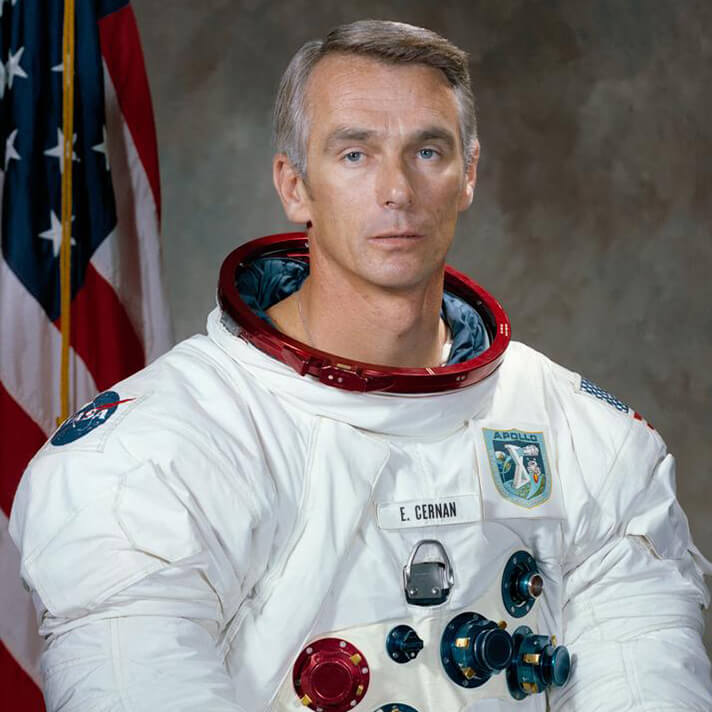
Gene Cernan NASA Bio
Learn More
Cernan took those steps on December 14, 1972, as commander of the Apollo 17 mission, where he became the 11th human ever to walk on the moon. Cernan and fellow astronaut Harrison Schmitt were responsible for a number of record-setting achievements during their three days of surface activity, including three extravehicular activities for a total of approximately 22 hours exploring the Taurus-Littrow valley.
Apollo 17 was the last of Cernan’s three NASA missions, the capstone of one of the space program’s most distinguished careers. After joining the astronaut program in 1963 – part of the third group of astronauts to be selected – he became the second American to walk in space on 1966’s Gemini 9 mission. On his next mission – Apollo 10 in May 1969 – he piloted the lunar module Snoopy to within eight nautical miles of the moon’s surface. That set the stage for Armstrong and Apollo 11 to make the first lunar landing two months later.
Following his final spaceflight, Cernan worked as a special assistant to the Apollo program at Johnson Space Center. In that role, he helped plan and organize the landmark Apollo-Soyuz Test Project, the first crewed international space mission, where a U.S. Apollo spacecraft docked with a Soviet Soyuz capsule in 1975 as a symbol of detente between the two nations.
Cernan was a member of the Navy ROTC and became a fighter pilot in the U.S. Navy. He earned a master’s degree in aeronautical engineering from the U.S. Naval Postgraduate School in 1963.
A skilled orator, Cernan was one of the featured speakers when Purdue dedicated the Neil Armstrong Hall of Engineering in 2007. He also eulogized Armstrong, his fellow alumnus and space pioneer, at the National Cathedral in 2012.
Cernan received an honorary doctorate from Purdue in 1970.
